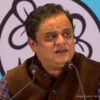Not feasible for court to give direction for single curriculum in schools: Delhi HC
On Monday, while hearing a public interest litigation seeking a common syllabus and curriculum in all schools, Delhi High Court asked how it could give a direction for a common syllabus and curriculum in all schools across the country when there are different state boards.
“How can we do this? There are state boards everywhere,” a bench of Acting Chief Justice Manmohan and Justice Mini Pushkarna said.
Petitioner and lawyer Ashwini Kumar Upadhyay said it was purely a matter of equal opportunity and all entrance exams for various fields such as medical and engineering have a common exam, respectively.
“They (entrance exams) have one paper and one syllabus for all, then why different curriculum in schools,” he submitted.
On the oral prayer of the petitioner, the court impleaded the National Council of Educational Research and Training (NCERT) as a party to the petition and granted it three weeks to respond.
The court listed the matter for further hearing in May.
In the petition, the petitioner claimed that different syllabi and curricula by the Central Board of Secondary Education (CBSE), Indian Certificate of Secondary Education (ICSE) and state boards is contrary to Articles 14, 15, 16, 21, 21A of the Constitution of India and that the Right to Education implies the Right to Equal Education.
“Syllabus and curriculum is common for all entrance examinations viz JEE, BITSAT, NEET, MAT, NET, NDA, CU-CET, CLAT, AILET, SET, KVPY, NEST, PO, SCRA, NIFT, AIEED, NATA, CEPT etc,” the petition has said.
“But the syllabus and curriculum of CBSE, ICSE and state board is totally different. Thus, students don’t get equal opportunity in the spirit of Articles 14-16,” it added.
The petition contended that a common syllabus and curriculum in the mother tongue will not only achieve the code of a common culture and remove disparity and discriminatory values but also enhance virtues and improve the quality of life and elevate thoughts that advance the constitutional goal of an equal society.
The petitioner alleged that the “school mafia don’t want One Nation-One Education Board, coaching mafia don’t want One Nation-One Syllabus and book mafia don’t want NCERT books in all schools”.
Earlier, the CBSE, in its counter affidavit, had told the court that multiplicity of curricula and resources in addition to a “core element” was desirable as a uniform board or syllabus across the country did not take into account the local culture, context and language.
The CBSE had sought dismissal of the petition and said there was a national framework that provided flexibility for emphasis on local resources and ethos so that a child could better relate to the curriculum and education.
Education being in the Concurrent List of the Constitution, it is for the respective state governments to frame syllabus, curriculum and conduct examinations for their schools, it had said.
“Uniform board/syllabus across India does not take into account the local context, culture and language. There is a national framework with flexibility for the emphasis on local resources, culture and ethos,” according to the CBSE.
“A child can better relate to a curriculum that is more closely related to his/her life outside the school. Therefore, the multiplicity of curricula and other educational resources is desirable in addition to a core common element,” the counter affidavit had said.
In the response, the CBSE explained that a national curriculum framework developed by the NCERT, according to the mandate of the National Policy on Education, set the guidelines and direction for the development of syllabi and textbooks at all the school stages.
The CBSE adopts NCERT’s syllabi and prescribes NCERT textbooks for schools affiliated to it, the response had said.
Also read:
NCERT: Add Ramayana and Mahabharata to social sciences curriculum
















Add comment